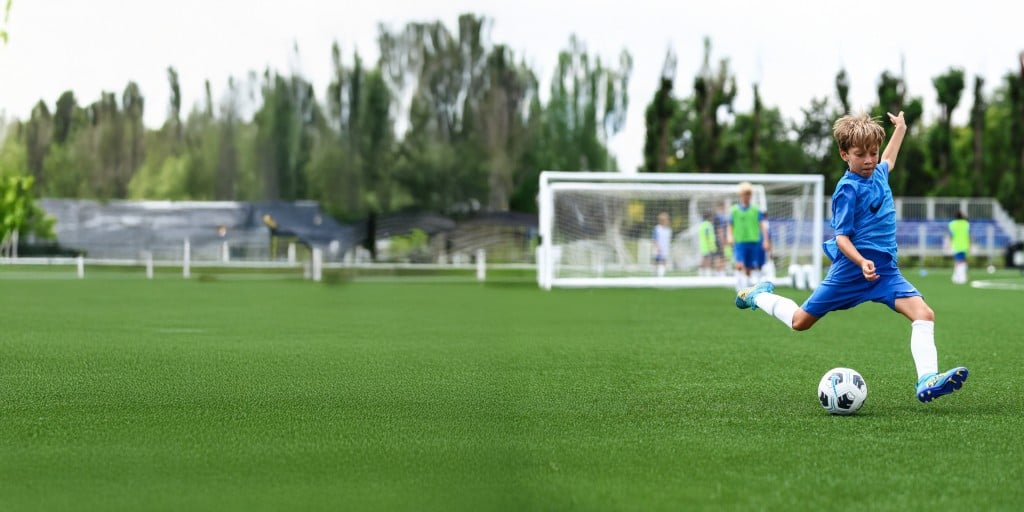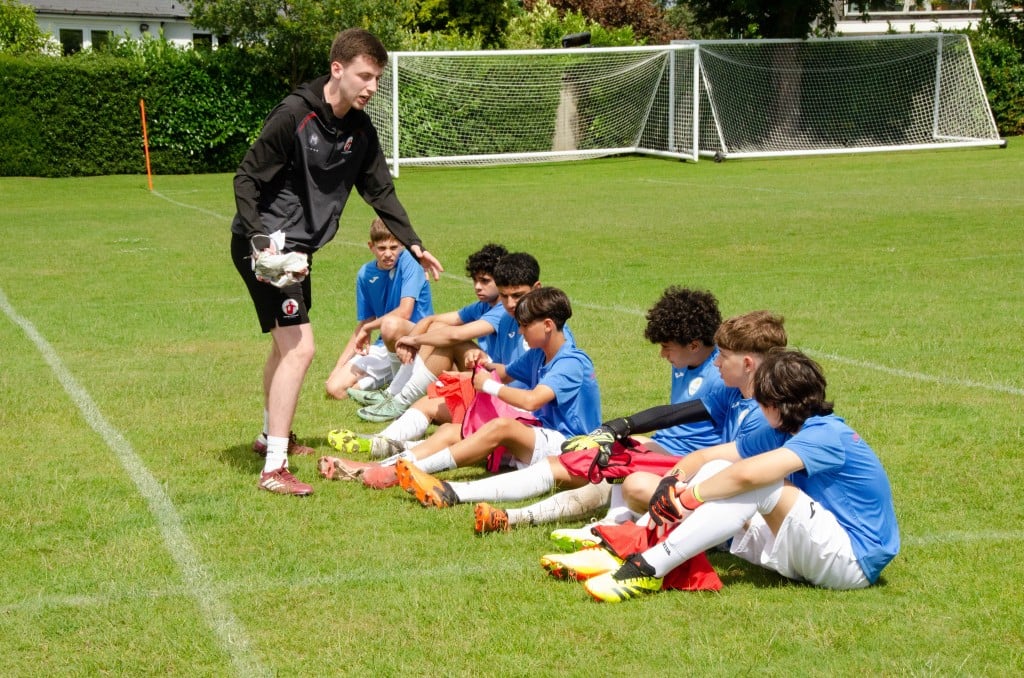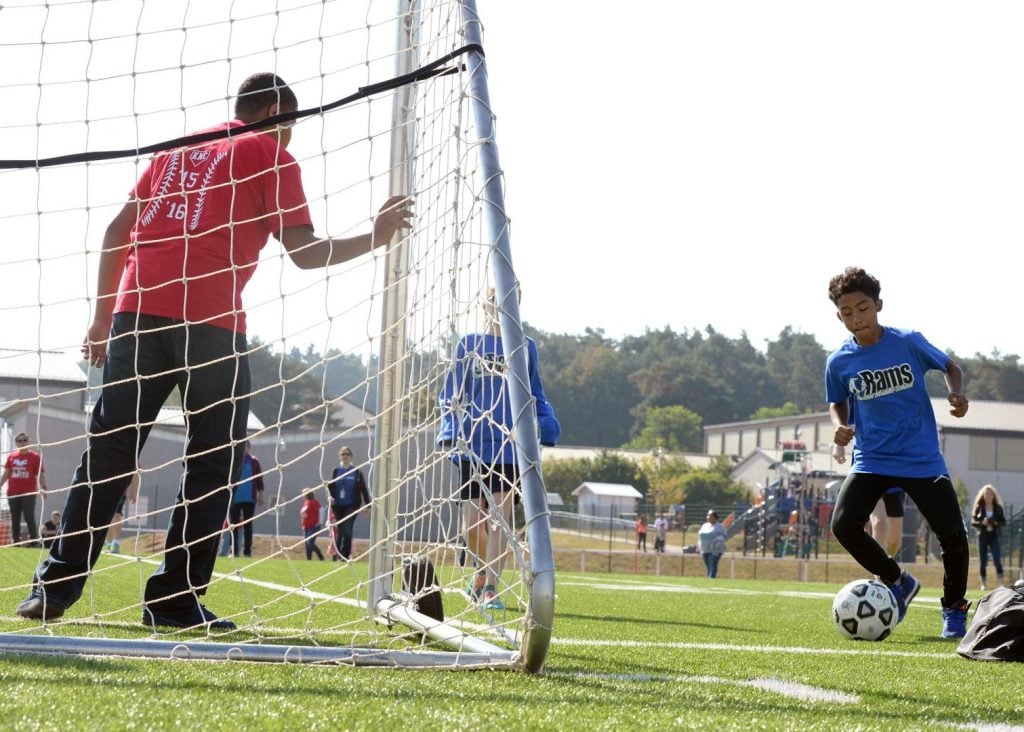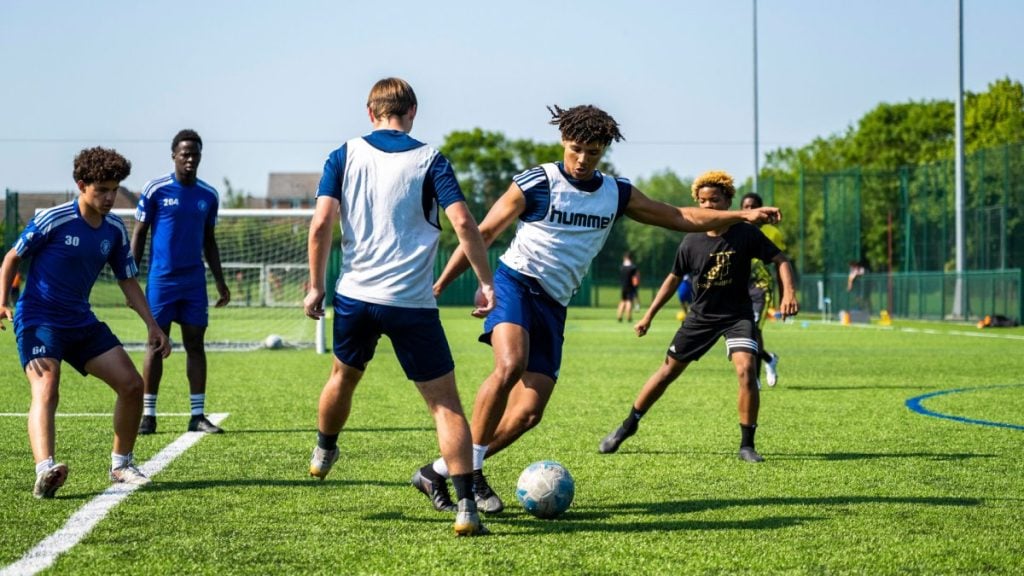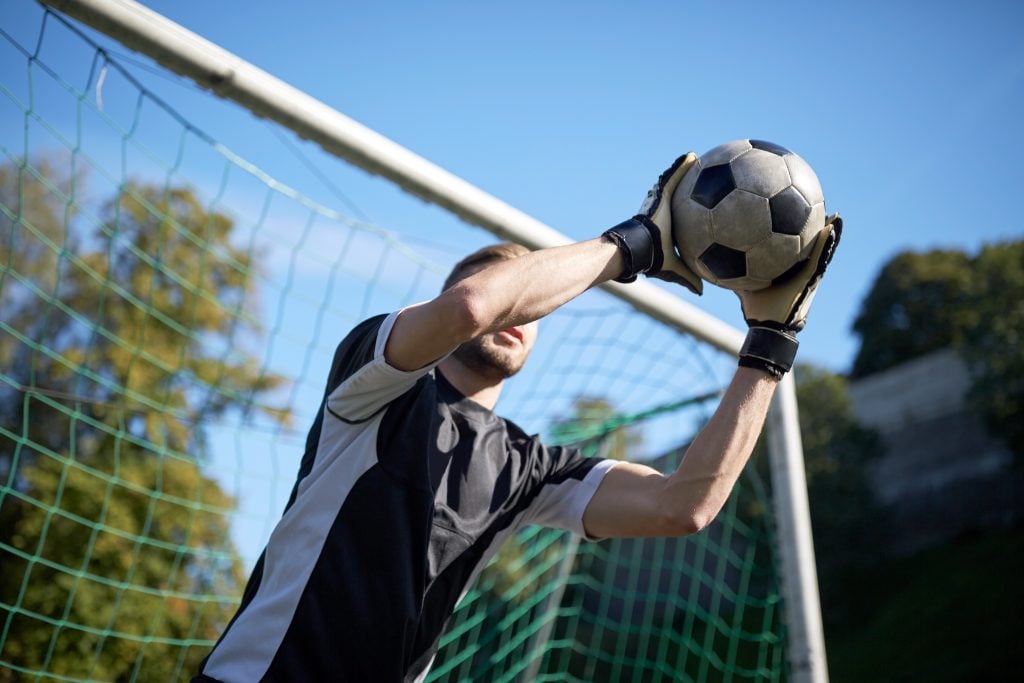Blog for Parents of Young Athletes
Tips and resources to support your child's development
Your goal as a parent is to provide your child with the best opportunities for personal and athletic development.
Our blog is designed to help you every step of the way.
We provide valuable information about the most prestigious summer camps, tips to support your child’s physical and mental growth, and resources to foster a positive attitude toward sports and life.
We want to be your ally in helping your children reach their full potential.

Summer soccer activities
Soccer camps are an ideal option to make the most of the school vacations, make friends, live new experiences while having a great time playing the beautiful game.Discover all that summer soccer camps have to offerDevelop soccer skills The camps have professional coaches with experience in grassroots soccer or coming from the quarries or foundations of the clubs.They are usually…
Soccer and English. How to choose a language camp
There are many camps, with different levels of soccer and languages, besides the doubt and the concern that arises when the option appears to send our children several weeks to England, a country with a different culture, although there are also programs in Spain and other territories.But soccer camps in England with languages have many more advantages than disadvantages, such…
10 Best Soccer Camps in July – Unique Experiences
And best of all, there are many camps in Europe and the United States that have openings for young people during the month of July, so parents can save the dates and organize their plans.As it is a holiday month, you as a parent have the possibility to set up your family’s entire vacation plan and coordinate it with your…
Best 6 soccer camps near London
For high level or elite level boys and girls there are soccer camps in England, ideal for those demanding players who want to compete against other players of a similar level to them and expose themselves to a highly challenging technical and physical environment.In turn, summer experiences are highly recommended for beginner or intermediate level players. They offer an adventure…
Best Football Academies London
For young footballers with big dreams, London stands as one of the most exciting cities in the world to pursue a career in football. Home to some of the most prestigious academies, both club-affiliated and private, the city offers a range of opportunities for aspiring players to hone their skills, develop their potential, and work towards a professional career in…
Best Football Colleges UK
What to Look For in a Football Program from a CollegeTo find the best football universities in England that offer competitive football and sports programs, it’s important to look for institutions that offer more than just casual football programs. By understanding what makes a college ideal for football enthusiasts—from educational flexibility and coaching quality to world-class facilities and professional opportunities—you’ll…
Best Football Academies in England
If you’re passionate about football and dream of joining the ranks of future stars, understanding what sets the best football academies in England apart is key. These institutions are renowned for shaping young talent, providing elite training programs, and opening doors to professional opportunities.By diving into this guide, you’ll gain insight into the unique features of England’s top football academies,…
Best Football Boarding Schools in the UK
In this article, we’ll explore some of the best football boarding schools in the UK, such as Millfield, Brookfield House, Repton and Bradfield College, focusing on their unique programmes, state-of-the-art facilities, and the all-around experience they offer to budding footballers.These institutions are designed to nurture raw talent, providing students with the skills, discipline, and mindset required to excel both on…
Best 8 soccer camps for girls in Europe – Train like a pro
That is why there are more and more women’s soccer camps, as big teams and sports institutions are betting on the development of young girls, recruiting talents that can become stars of their first team.So to help you choose the best camp for your daughter, in this post we will talk about the 8 Best Soccer Camps in Europe for…
Best goalkeeping camps in Europe – Train like a pro
In turn, the European continent has elite-level leagues that are the benchmark in terms of the competitiveness of world soccer. Therefore, the demands in the academies and camps of large entities are very high and demanding.In addition, the camps have specialized plans for goalkeepers, in order to expose them to a highly competitive environment so that they can exploit their…
Blog Topics
Looking for a specific topic?
Browse the main categories to find specific information on the topics that interest you most.


